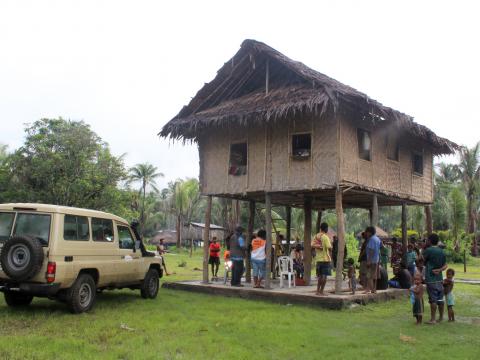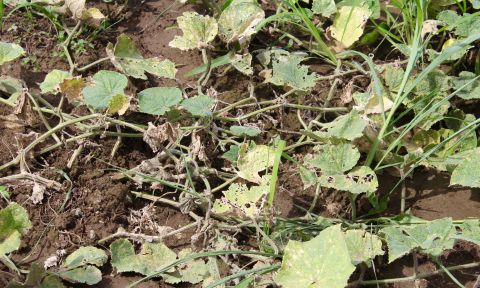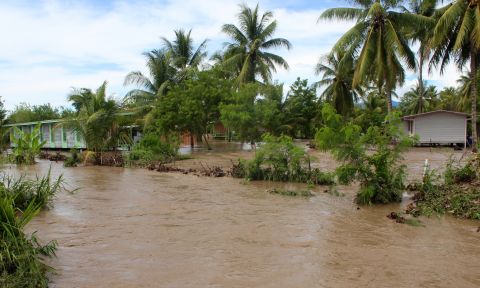Families facing hard times due to El Niño

By Welly Enas, Programme Officer & Paula Kari, Communications Officer, World Vision Papua New Guinea
Despite heavy rainfall during the past two months, getting back to normality after El Nino is undeniably a big challenge for many families in Papua New Guinea (PNG).
“It is not our culture to just chat with you and not give you anything to eat. We always welcome our visitors with something to eat,” said village leader Mas Tafmora, during a recent rapid drought assessment by World Vision in Tafmora, Markham District, Morobe Province. He explained that the villagers could not cook for visitors as there was not enough food in the house.
Tafmora community is amongst the worst affected communities in Markham District. The drought has destroyed all the crops in their gardens.
He explained that the villagers could not cook for visitors as there was not enough food.
As with other communities around PNG facing similar impacts from El Nino, families may continue to face food shortages for up to a year. The local food crops in the gardens have all dried out. Coconuts, their alternate source of water, have withered badly too.

Withered cucumber plants.
Banana a staple food and usually seen almost everywhere- has lost its ability to survive in the gardens. In fact, few mature banana trees were seen around the area during the assessment.
The bag of rice that the locals received from the government last year only lasted three weeks. Unfortunately, the supply was not continuous throughout the drought period. People were surviving on anything edible they could find, including wild yams found in the forests.
The supply of food will take a long time, probably up to a year, to be restored, even with the current rainfall.
According to observations by the assessment team, the supply of food will take a long time, probably up to a year, to be restored, even with the current rainfall.
It is like starting all over again.
Banana, kaukau (sweet potato), taro, cassava, and other food crops have just been planted again. The only food crops that have responded well in the short rainy period are fast growing plants like corn, pumpkin, and cucumber, and greens like aibika among others.

After facing drought, recent rains have now flooded this community.
Cash crops such as cocoa and mustard plants have been badly affected as well. Only mustard is recovering well, bearing a few mustard sticks. The mustard sticks are of high demand at markets, allowing farmers to buy rice for their families.
At the moment food is under tight budget and everything that is edible is preserved and shared.
Schools were also forced to close early last year because of the lack of food and water. This year, many families cannot afford to send their children to school.
The Markham community earns money through the sale of food crops and with all the food crops damaged during the drought, parents now have difficultly paying for their children’s school fees.
The El Nino Drought Response project in Markham - supported by the New Zealand AID Program (MFAT) and World Vision New Zealand - is one of two projects started in January and will end in August. The other project is being implemented in communities in Bogia District, Madang Province.
Supported by the Australian Department of Foreign Affairs and Trade (DFAT) and World Vision Australia,
World Vision PNG also conducted rapid assessments in five hard-hit provinces in the PNG highlands.
“Inception workshops for these projects are being held this month with partners such as the National Agricultural Research Institute (NRI), provincial and district authorities including provincial disaster offices and the United Church in the highlands,” said Bonie Belonio, Project Consultant and El Nino Response Manager.
World Vision is planning to distribute relief items including 360,000 water purification packets and 4,000 jerry cans in Hela and Southern Highlands provinces.
In Madang and Morobe, World Vision will distribute 450,000 water purification packets to an estimated 5,000 people and 10,000 jerry cans to each household.
With flooding in many parts of the countries recently, having access to clean drinking water is essential to good health for families and children as many of the water sources have been contaminated.
Partnership with NARI is essential to ensure communities and families have access to quick yielding crops such as corn which can thrive in wet conditions. Malnutrition may become an issue in the long term as it will take time for food gardens to produce abundantly and sufficiently for children and their families.